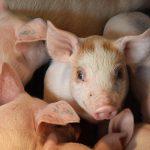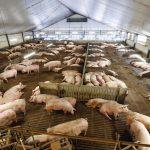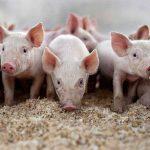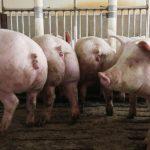Pig farming is a profitable business that has been around for centuries. It has evolved from the traditional backyard system to modern commercial farms, which have increased productivity and efficiency.
Nigeria is one of the countries that have great potential for pig farming. Pig farming in Nigeria is not only profitable but also provides job opportunities and contributes to food security. Despite the highly lucrative nature of pig farming, running a successful pig farming business in Nigeria is challenging, with various issues to consider. This guide will show you 8 steps you need to take to start and maintain a modern pig farm in Nigeria.
Conduct Market Research
The first thing you need to do if you want to start a pig farm in Nigeria is conduct market research. Researching helps you understand the demand for pork and other pig products in your area, the pricing, and the competition. This will enable you to tailor your farming practices to meet the needs of your target market and increase your chances of success.
For starters, you can visit local markets, meat shops, and supermarkets to gather information on the current price of pork. This will give you an idea of the market demand for pork and the pricing structure in your area. You can also observe the different types of pork products being sold and the packaging used. This will help you identify opportunities to differentiate your product from the competition.
Another important aspect of market research is understanding the current trends in the pig farming industry. This can be done through online research or by attending industry conferences and events. By keeping up with industry trends, you can stay informed about the latest technology and best practices in pig farming, which can help you improve the efficiency and profitability of your operation. You can also network with other pig farmers in your area to find tips on how to succeed in the industry. By building relationships with other farmers, you can also collaborate on bulk purchases of supplies and equipment, reducing costs for your business.
Select a Good Site
Finding a suitable location for your pig farm is the next step to take after conducting market research. The location should be in an area that is convenient for transportation. It must also have a steady supply of power and water. The location must also have enough room for pig pens, feed storage, and other essential facilities.
Due to the noise and smell connected with pig farming, a location that is too near to residential areas may cause complaints from locals. As a result, it is wise to pick a spot away from residential areas. Also, the farm site should have enough space for the number of piglets you intend to raise, as well as room for future growth. To avoid waterlogging, which could cause health problems for the pigs, the site needs to have excellent soil quality and be well-drained.
Consider the Building Design
The layout of the pig pens is an important consideration in pig farming because it has a direct impact on the well-being and output of the animals. The pens should be constructed in a way that the piglets can live comfortably in them. Proper ventilation is one of the most important aspects to take into account when constructing pig pens. The health of the pig depends on proper air circulation because it guards against respiratory illnesses. To accomplish this, windows, vents, or fans that allow proper air circulation can be installed.
The cleanliness of the pig pens is another key factor in their construction. The pens should be built in a way that they are easy to clean and sanitize. By doing this, you’ll help keep the surroundings healthy and lower the risk of contracting illnesses. The walls should be built with solid and washable materials, and the carpeting should be non-slip and easy to clean.
It is recommended to hire an architect or consultant to assist with the design of your pig pens. They will work with you to develop a plan that satisfies your particular requirements and conforms with local laws. They can also assist you in maximizing the use of materials and space, which will lower the total cost of construction.
Invest in Modern Equipment and Infrastructure
Running a profitable pig farm in Nigeria requires making investments in pig farm equipments and buildings. Modern equipment increases efficiency, lowers labour expenses, and facilitates pig management. Pig farming requires the use of feeding troughs because they offer a practical and hygienic method of feeding pigs. The grain should not be wasted, so the troughs should be made of sturdy materials. Additionally, it’s important to check that the feeding troughs are at a height that the piglets can easily reach. It is important to choose machinery that factors in the unique requirements of your pig farm.
Water troughs are another important component of pig farming tools because pigs need a steady supply of clean water to remain healthy. The water troughs should be constructed to stop spills and contamination, and they should be cleaned frequently to keep up with sanitation. Another important piece of equipment for a modern pig farm in Nigeria is a pig feeder. They are made to ensure that each pig receives the proper quantity of feed, minimizing waste and guaranteeing that the pigs receive the nutrients they need to grow healthily. You need to clean the feeders frequently to keep hygiene and stop the spread of disease.
Ensure Proper Feeding and Nutrition
The health and growth of the pigs can be greatly impacted by feeding, which is an essential component of pig farming. Pigs need a balanced meal that gives them all the necessary nutrients for optimum growth and development. Proteins, carbohydrates, fats, vitamins, and minerals should all be included in their nutrition.
Nigeria has a large supply of commercial swine feed, which you can buy from reliable vendors. However, many pig farmers choose to produce their feed as a more affordable option. You can cultivate crops like maize, soybeans, and cassava to make your feed. These plants are abundant in the vital nutrients that pigs need to develop.
Note that the production of your own feed requires a thorough understanding of animal nutrition and feed formulation. To avoid malnutrition or obesity in your piglets, make sure they are receiving the proper dosage of each nutrient. To create a balanced meal for your pigs, you can consult a veterinary nutritionist.
Invest in Disease Control and Prevention
Disease control is an important part of any pig farming operation. This is because pigs are susceptible to different diseases that can have a severe impact on their health. This, in turn, can affect the overall profitability of your farm. African swine fever, foot-and-mouth disease, and swine flu are just a few of the diseases that can affect pigs. Therefore, it is important to develop and invest in a good disease control strategy that addresses all potential health risks and minimizes the chances of a disease outbreak.
One essential part of any disease control program is regular vaccination. Vaccines can help to prevent or reduce the severity of many common pig diseases. Proper hygiene practices are also important for disease control. Pigs are susceptible to infections from bacteria, viruses, and parasites that can be easily transmitted through contaminated feed, water, or bedding. Pig farmers should ensure that their pigs have access to clean water and that their feed is stored in a dry, clean area to prevent contamination.
Another essential component of a disease control program is quarantine procedures. When new pigs are introduced into the herd, they should be isolated for a period of time to ensure that they are not carrying any diseases that could spread to other animals. Similarly, if an outbreak occurs, infected animals should be separated from the rest of the herd to prevent the disease from spreading further.
Employ Good Management and Staffing
You need a competent management team and skilled staff to run a successful pig farm. It takes a lot of expertise, knowledge, and experience to ensure that a pig farm is efficiently managed and that the pigs are raised in a healthy environment.
At the top of the management hierarchy is the farm manager, who is responsible for overseeing the day-to-day operations of the farm. The farm manager should have extensive experience in pig farming and be able to handle the various challenges that come with it. They should be able to make informed decisions about pig health, nutrition, and welfare, as well as manage the financial aspects of the farm.
The farm manager should be a good leader who can motivate and manage the staff effectively. They should be able to establish clear goals and communicate them to the team, monitor progress, and ensure that all operations are conducted in accordance with regulations and best practices.
In addition to the farm manager, hiring skilled workers such as animal health technicians, feeders, and cleaners is crucial to the success of a pig farm. Animal health technicians are responsible for monitoring the health and welfare of the pigs, diagnosing illnesses, and providing medical care when necessary. They should have a good understanding of pig physiology and behavior and be able to work effectively with the farm manager and other staff members.
Feeders are responsible for ensuring that the pigs are fed a nutritious and balanced diet. They should have knowledge of pig nutrition and be able to manage feed inventories effectively. Cleaners are responsible for ensuring that the pig pens and other areas of the farm are kept clean and free of waste. They should be physically fit, able to handle cleaning equipment, and able to work efficiently and effectively.
Develop a Marketing Plan
Marketing is an important part of pig farming. You need to develop a marketing plan that includes branding, advertising, and promotion. You can sell your pork products to local markets, supermarkets, and meat shops. You can also export your products to other countries.
One key part of your marketing plan should be branding. This involves creating a unique and recognizable identity for your pig products. This will help to differentiate them from those of your competitors. This may involve creating a logo, tagline, or other visual elements that help to communicate the quality and uniqueness of your pork products.
Advertising is another important aspect of your marketing plan. This may involve placing advertisements in local newspapers or magazines, creating online ads, or running radio or television commercials. Social media platforms can also be effective advertising channels for promoting your pork products to potential customers.
Selling your pork products to local markets, supermarkets, and meat shops is a great way to reach local customers. Exporting your products to other countries can also be a lucrative opportunity for expanding your customer base and generating additional revenue.
To ensure the success of your marketing plan, it is important to conduct market research to identify your target audience and determine the most effective marketing channels to reach them. Additionally, it is important to maintain the quality and consistency of your pork products to ensure customer satisfaction and build a strong reputation in the marketplace.
Conclusion
Pig farming is a profitable business in Nigeria that requires thorough planning, research, and investment. Conducting market research, selecting a good site, considering building design, investing in modern equipment and infrastructure, and ensuring proper feeding and nutrition are the steps required for success.
With the right knowledge, resources, and support, pig farming can be a profitable and sustainable business venture that contributes to food security and job creation in Nigeria. See the five best breeds of pigs to rear in Nigeria.




